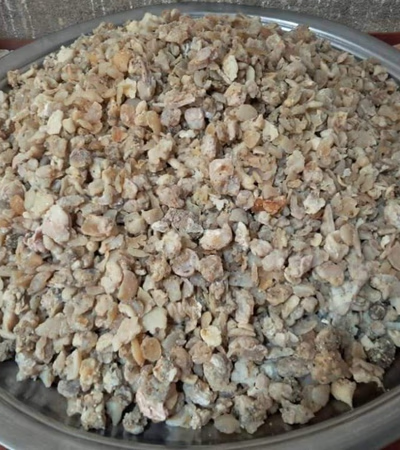The underutilization of Afghanistan"s vast agricultural potential presents a paradox in a nation where agriculture accounts for 25. 77% of GDP and employs 45. 05% of the workforce. Despite a rural population growth of 2. 63% annually, only 6. 01% of agricultural land is irrigated, limiting productivity. However, the country"s agricultural raw materials exports rose to 21. 04% of merchandise exports in 2019, indicating potential for expansion.
A persistent challenge for Afghanistan is its low fertilizer consumption, which declined from 20. 45 kg to 10. 97 kg per hectare over three years. This reduced input has stymied growth in cereal yields, which saw a minor increase to 2,184. 7 kg per hectare in 2019. Moreover, reliance on agricultural imports remains minimal at 1. 77%, suggesting a need for improved domestic production capacities to meet internal demand. Opportunities abound in Afghanistan"s diverse crop production, which has shown resilience through a 115.
78 index in 2019—an impressive recovery from previous years. With global demand for organic and sustainably sourced products rising, enhanced irrigation and fertilizer strategies could bolster Afghanistan"s competitiveness, particularly in industrial and medicinal crops sectors. In this dynamic landscape, Aritral. com offers a significant advantage. As an AI-driven B2B platform, Aritral simplifies international trade in commodities and raw materials. Its services, such as Product Listing and AI-Powered Marketing, help local producers connect with global markets, addressing key market barriers. For businesses aiming to expand their foothold, leveraging Aritral"s platform for Direct Communication and Global Sales Assistance can facilitate strategic partnerships, fostering growth in Afghanistan"s promising agricultural sector.
-
 Sadid 3 ay önce
Sadid 3 ay önce Afganistan
Bal
Afganistan
Bal
Bal, %100 Saf Afganistan'ın en iyi bitkilerindenAyrıntılar
-
 Şad Muhammed Valizadeh 3 ay önce
Şad Muhammed Valizadeh 3 ay önce Afganistan
Hing veya Angoozeh
Afganistan
Hing veya Angoozeh
Hing veya Angoozeh tamamen doğal bir bitki ve tedavi edici bir ilaçtır ve iyileşme için kullanılır.Ayrıntılar
-
 Ali Heydari 3 ay önce
Ali Heydari 3 ay önce Afganistan
Buğday
Afganistan
Buğday
Evet, hem ithalat hem de ihracat yapmak istiyorum.Ayrıntılar


